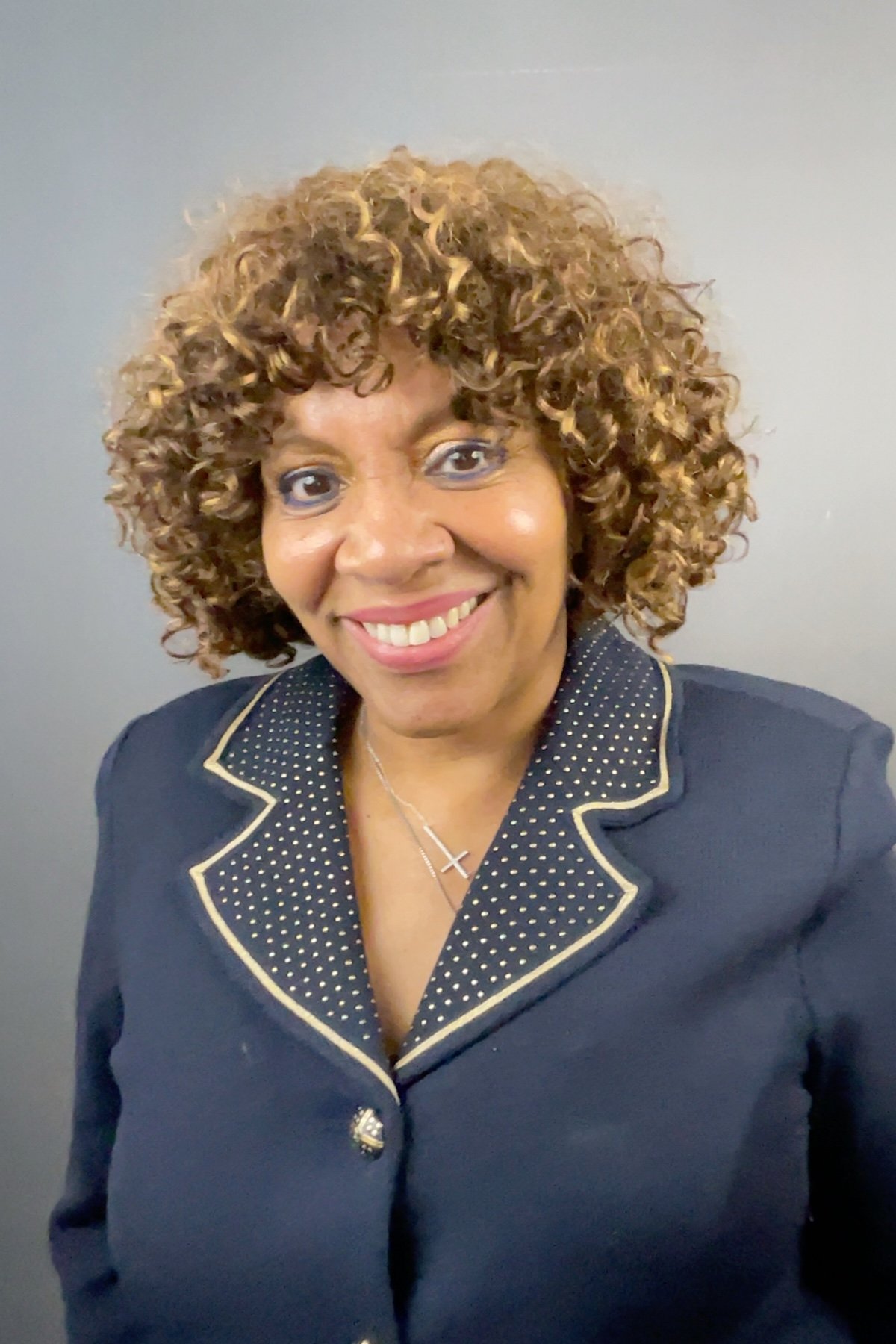Commissioners’ Corner: Racism in School Nursing
Cynthia Samuel PhD, RN, CSN-NJ
4 min

Dr. Cynthia Samuel is a recognized, respected, and award-winning health equity innovation strategist. She is committed to next-level change in how the medical community serves children and supports nurses. A school nurse in Essex County, New Jersey, Dr. Samuel also serves as a member of the Seton Hall University School of Health and Medical Sciences diversity, equity, inclusion, and social justice steering committee. She previously served as a member of the National Association of School Nurses (NASN) diversity, equity and inclusion task force and currently serves NASN as the standards and practice co-chair. Dr. Samuel also is an executive board member for the New Jersey State School Nurses Association, and vice president of education for the New Jersey State Nurses Association. In March 2024 she was selected for induction into the National Academy of School Nurses.
You describe yourself as a health equity innovation strategist. What does that entail?
I’m very interested in and committed to finding various strategies and implementing interventions to ensure health equity. This takes someone who is very strong, committed, and knowledgeable.
How does this work in practice?
When COVID hit, our school and entire community was paralyzed and didn't have access to resources needed to survive, let alone medical resources. But the community was comfortable reaching out to me, and I made myself available. The community was expressing its needs and just venting because we lost people—staff, students, and community residents passed away from COVID. The community needed a trusted resource, and they trusted me when they didn't know what to do, where to turn, who else to trust.
The Commission has clearly outlined how racism has and continues to affect nurses and the nursing profession. How has it affected you personally?
I have stories. I was told that I should choose a career other than nursing, and that I couldn't survive the program at the baccalaureate level. I graduated, did very well, and then was told not to pursue graduate studies because I wouldn't be able to survive it. But I did. Even in my doctoral studies, things were deliberately done and said to me to dissuade me from becoming doctorally prepared, but here I am.
In nursing school my care plans and other students’ care plans would have the same content and they would receive As and Bs but I would receive a C. Or fellow students would meet somewhere undisclosed to study for an exam, and I wouldn’t be included in the study group. Students who had cars to travel to our clinicals didn't invite me to ride with them, even though I had gas money to contribute.
On the flip side, has there been a memorable moment of antiracist allyship for you?
Absolutely. I've had wonderful professors who took the time, who saw what was happening and offered to meet with me during their office hours and help me study. Offered pearls of wisdom to encourage me. Proofed my work and instructed me on how to boost my grades or revise my papers so that I would receive good grades.
How does racism or racism in nursing affect your work as a school nurse?
I'm not always invited to the table when it comes to health policy that affects children's health, or to programs that other more affluent districts are privy to. They won't come to my district because they don't want to be in an urban community and some of them are just scared. I'm not always invited to participate in panel discussions, even ones that involve healthcare disparities that directly affect the community in which I work. I call them on it every time, and they take it to heart. Some of them are embarrassed.
How would you describe the state of racism in nursing today?
It still exists. I graduated from nursing school 40 years ago and many of the same things that happened then are still happening. Some of it is just as blatant and overt as it was when I was in nursing school. There are isolated incidences where people get it, but a lot of people in 2024 not only don't get it, they don’t want to get it. Nurses of color are still being shunned from specialty areas, management positions, promotions. Conferences and professional development are being offered to a certain category of people while others don't even know about it because it wasn't intended for us to know about it. These things are still transpiring.
What will it take to have a diversified nursing profession that’s inviting to all?
The United States is becoming more diverse, and racism isn't just Black and White. Various ethnic groups are empowering and uplifting their own and they aren't inclusive of anybody else. So racism is just as diverse as the people who implement it. The important thing is to identify where the racism is occurring, who's instituting the racism, specifically what is being done, and expose it. People have to understand that racism and diversity are across the board and affect everybody —not just Black and White.
What would it mean to achieve a diverse and inclusive nursing profession?
Everybody has to be on the same page, want the same things, come to the table, put it all on the table, and reach common ground. Everybody has to understand what racism is in their individual workplace. Diversity is multicultural, and has to include everybody from every walk of life. If there are six White people and six Black people at the table that's a poor way of representing diversity. Diversity means you have every color spectrum, every religious entity, every cultural background, and you’re exhibiting cultural sensitivity.
How would true multicultural inclusion, cultural competency and compassion for everyone affect the nursing profession, patients, and healthcare?
When you incorporate inclusion in direct patient care, that patient may get better even faster because they know the care they’re receiving is personalized and meant for them. It's not a cookie cutter care plan. A lot of times patients don't get better as fast as they could because they're not really being cared about as a person. Don't do the basics and satisfy basic needs. Care about me as a human being. When you incorporate cultural competency and inclusion in your workplace, patients see it. They also see and hear when we don't care about each other as a team. They see and hear arguing at the nurses station and cutting comments to each other. So it takes a team effort. Everyone has uniqueness, and diversity celebrates and showcases your uniqueness as a nurse, as a person, as a team.
It’s not just about being technically competent as a nurse, but seeing each patient and one’s colleagues as a whole person, and the healthcare system as a whole system?
Absolutely. That speaks to the National Association of School Nurses' 21st Century framework for school nursing practice. You treat the child as a whole person so this child is now ready to learn. It incorporates a lot of collaborative efforts that meet the needs of the child. That's what nursing is all about. It's more than just treating what hurts—It's a holistic effort, acknowledging and embracing the whole person and everything that incorporates. Nursing practice should be stented around that.
What would you most like White nurses to know about racism in nursing?
That it exists and that it hurts. Imagine having the door slammed in your face but seeing a White nurse without your knowledge, skills, and experience get a position and then seeing her fail. But the powers that be didn't want you to have the position because you're Black. They’d rather watch her make mistakes as opposed to seeing someone like me shine. Every day I wake up as a Black woman, I have to handle that—professionally. Because of my faith I'm past the anger. I just ask God to give me the strength to handle it. Some people unfortunately can't get past it because the pain is just too intense. And the cut goes too deep.
What would you like White nurses to do about racism in nursing?
Do what's right. Lead by example. If you see a nurse is qualified and can do the job, give them the opportunity to do just that. Contribute to their success. Be the change that you want others to see. Be a blessing.
What would you like to convey to nurses of color?
Stay positive and realize that there are good people in the world. Don't let isolated racist events or remarks prevent you from achieving your dreams. If someone calls you the N word, just say “Jesus loves you too.” If you're denied certain positions in nursing or any other health care profession because of the color of your skin, don't be angry. For those who are spiritual, take it to the Lord in prayer and move on to the next person. Because for every “No,” someone will say “Yes.”
What encourages you right now and what discourages you about seeing change in the nursing profession?
My encouragement far outweighs my discouragement. The discouraging thing is that racism still exists and there hasn't been much of a paradigm shift. The other discouraging thing is there’s a lack of involvement and lack of interest in addressing it and calling it out. The Commission and its work encourages me. More people know what racism is and can identify and are calling it out. We still have a long way to go. There has to be consistent, continuous change. It has to keep advancing with more people on board, showing interest and just not tolerating it anymore.
What future state of nursing do you envision?
People are eventually going to wake up and realize that we can't live in this world by ourselves or with our own personal viewpoints. We have to interact with people outside of our race, who may not have the privileges and skill sets that we have. I believe It will get better, but it's going to be a challenging road ahead.



